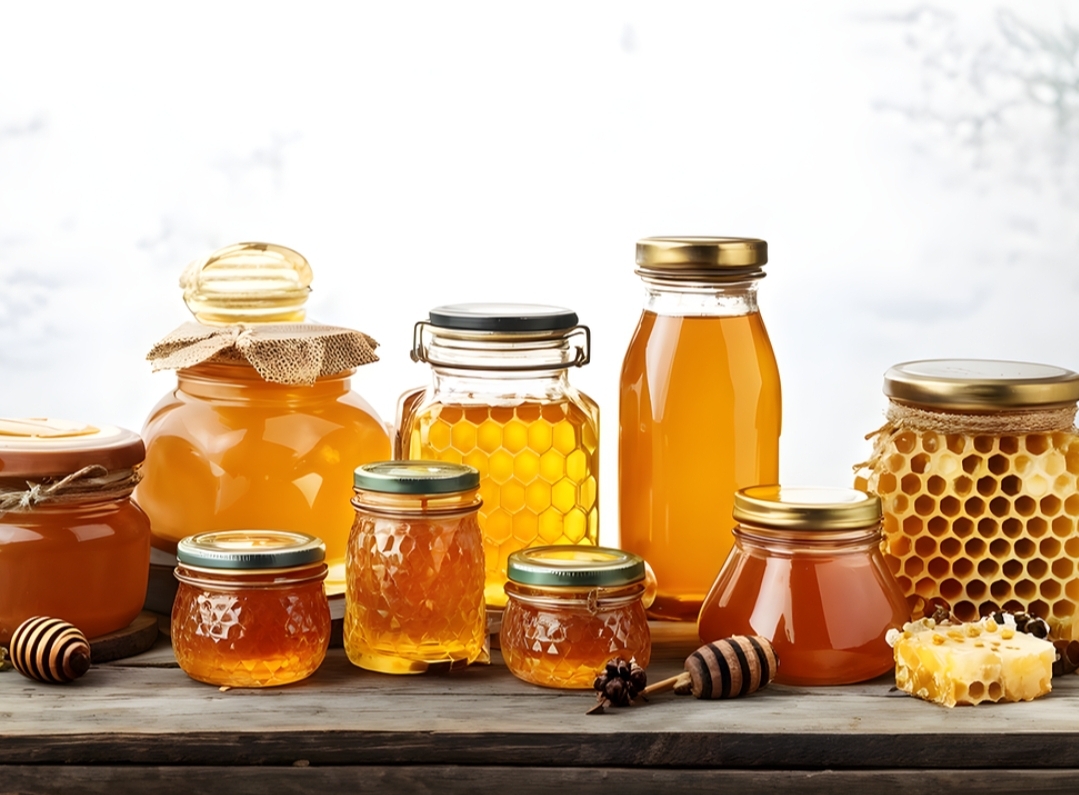Honey is famously the only food in the world that doesn’t spoil. Although, honey can lose flavor and quality if not stored correctly. The oldest honey ever discovered is a staggering 5,500 years old, found in a tomb in the Republic of Georgia. Archaeologists unearthed jars of berries perfectly preserved in honey; the fruit was still vibrant in color and smelled sweet. Various objects buried in the tomb were embalmed with honey and are in excellent condition despite being a few thousand years old. The ancient Egyptian Sun Temple contains the earliest record of beekeeping, dating back 4000 years—however, evidence of humans harvesting honey dates back even further. 8,000-year-old cave paintings in Spain depict a human climbing a ladder to collect honey while surrounded by honey bees.
Honey has been revered as a religious, monetary, and medicinal substance throughout recorded history. During the medieval period, feudalist Germany required people to pay their lords with honey and beeswax. Ancient Egyptians and Greeks offered honey to the gods, buried it with their dead, and used it to sweeten food and drink. Honey is valued for its antibacterial and antiviral effects in traditional Chinese, Indian, Egyptian, and Hellenic medicines. It has been used to treat eye and skin diseases, insomnia, indigestion, sore throat, and pain, to name a few.
Even in modern times, the medicinal properties of honey continue to be a subject of promising research. The unique qualities of each honey are influenced primarily by the type of plants the bees pollinate. The location, climate, time of year, and processing methods can also affect honey’s qualities. Light, medium, and dark kinds of honey have been found to possess different health benefits, adding to the intrigue and potential of this ancient substance. However, it’s important to note that while honey can be a valuable addition to a balanced diet and contribute to overall health, it is not a replacement for modern medicine. This caution is crucial for maintaining a balanced approach to health and wellness.
Honey is far more than just a sweetener. Our ancient relationship with honey is a testament to nature’s ingenuity. The natural sugars in honey can provide a quick energy boost, and its soothing taste can uplift our spirits, giving our lives an extra buzz of happiness.
Her Nexx Chapter invites you to join our free Community where women from around the world are connecting with each other’s stories, exploring different experiences, and transforming ideas.
The Future of Connection for Women








Unfortunately, I think the only pesticide-free honey might be produced in secluded acreage where there’s no chance of pesticide contamination from the wind, in any direction. Maybe the manuka flower bees, or parts of northern Canada (Honey Bunny Bees in Alberta, Canada?)? Organic bee product regulations are pretty pathetic, as they only require that the bee food (sugar) be organic, and that only a 2 mile radius from the hive be organically certified. Bees will travel farther for food, so if the flowers near the hive are all tapped (which seems likely, if you have a bunch of hives), then nothing is stopping them from flying over the fence to collect from pesticide laden blossoms. Also, nothing stops the wind, or other insects from cross-contaminating within the 2 mile zone. Have you found an safe brand that you could share the name of? Thank you for this article.